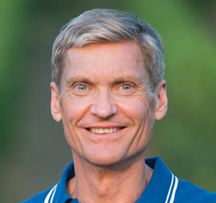Food Systems Podcast 15
In discussion with Erik Fyrwald Podcast summary
Thursday, Feb 25, 2021
Agriculture needs aggressive climate goals – and it can delive
Agriculture has the capability to create a much more resilient food system and become a part of the solution to climate change. But for that to happen, governments need to set clear outcome goals to catalyse action from the entire food chain and support from the public. Erik Fyrwald, Syngenta Group CEO, believes passionately this is achievable. He says European agriculture could potentially halve its emissions by 2030 – in Europe, farming is responsible for 13% of greenhouse gas emissions – and by sequestering more carbon in the soil. Erik gave us his perspectives in conversation with our host Robert de Graeff in the recent Food Systems Podcast, for those who prefer READING to LISTENING, we’ve summarized the key points:
How much could we reduce agricultural emissions in Europe?
By 2030, have a goal of at least halving the 13%. The sooner we set the goals and the more aggressive they are, the quicker the actions will be to achieve them.
What does a modern farm look like 10 years from now?
Even sooner, farms will be highly supported by technology to produce much higher yields and to be able to capture carbon in the soil. This will be done by using seeds, fertilizer, crop protection products and regenerative farming practices.
How do we get these technologies and practices into the hands of farmers to accelerate change?
Governments have to put in place the incentives for farmers to do this. The first step needs to be outcome goals around agricultural sustainability, then incentives.
• Farming subsidies need to be geared towards supporting sustainable and regenerative agriculture practices.
• We need a carbon credit system so as farmers capture carbon in the soil, they are able to sell those credits.
• We also need food labelling so consumers can pick sustainably grown foods. Then food companies, retailers, the whole value chain are all incentivized.
How can carbon farming work for the environment and for farmers’ profits?
There’s a great opportunity to capture carbon, for farmers, the value chain and the world. We need to be able to to estimate how much carbon is captured through regenerative practices, verify that, and from that determine the carbon credits that farmer gets. There’s a huge demand for those carbon credits from companies who need offsets.
What exactly do we mean by regenerative practices?
It’s having healthy soils that lead to healthy plants that lead to healthy people and a healthy planet. Regenerative agriculture can enrich the soil, can have high yields, and capture carbon from the atmosphere
What about public opinion – how do we bring them along on this journey?
Start with outcome-based goals. Let entrepreneurs and scientists who care about the planet help guide us on what are the right technologies, what are the right practices. We need strict science-based regulatory processes that ensure safety. With that kind of drive, trust in the system will improve.
We also need to keep reducing the volume of pesticides, even though they’re at safe levels today. With better and better crop protection products, biologicals and digital tools, we can do this.
If you have found this short summary interesting, there’s lots more to hear in the full 22-minute conversation. It is available now on iTunes, Podbean or Spotify or on this website.

